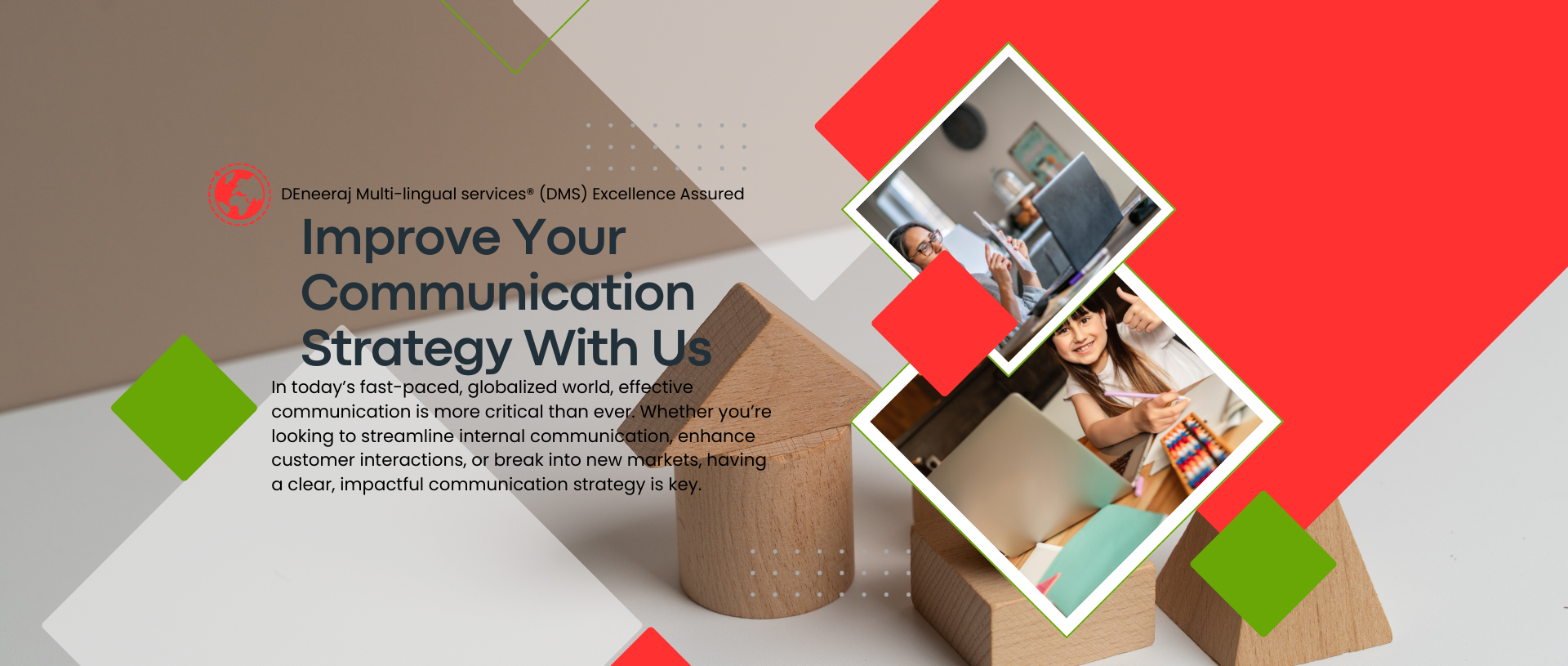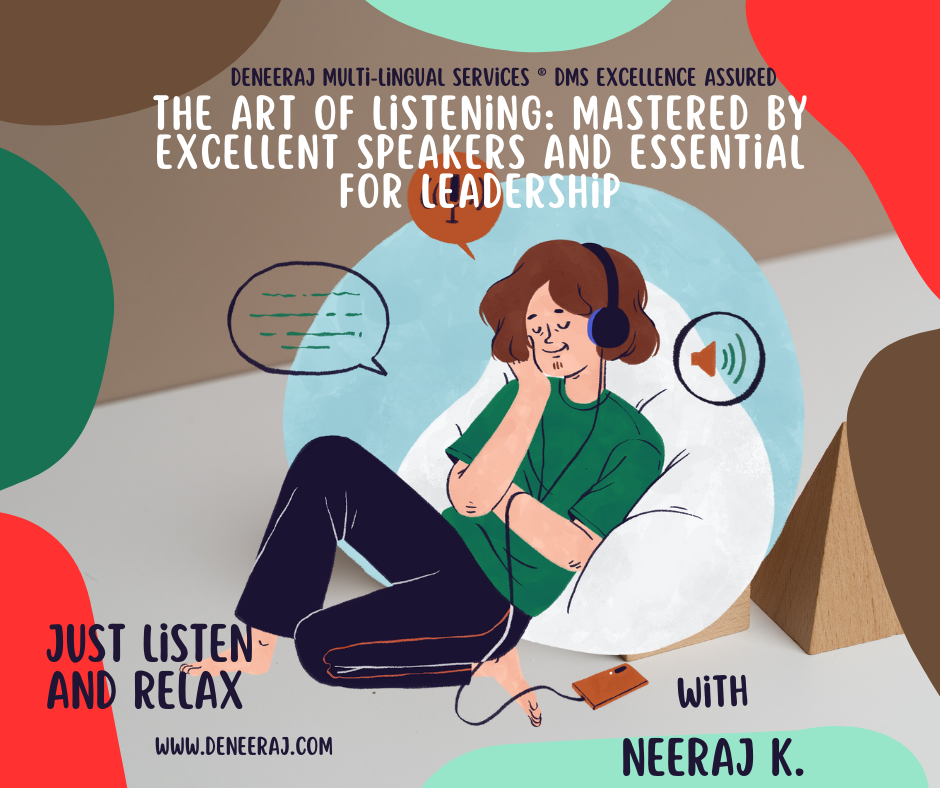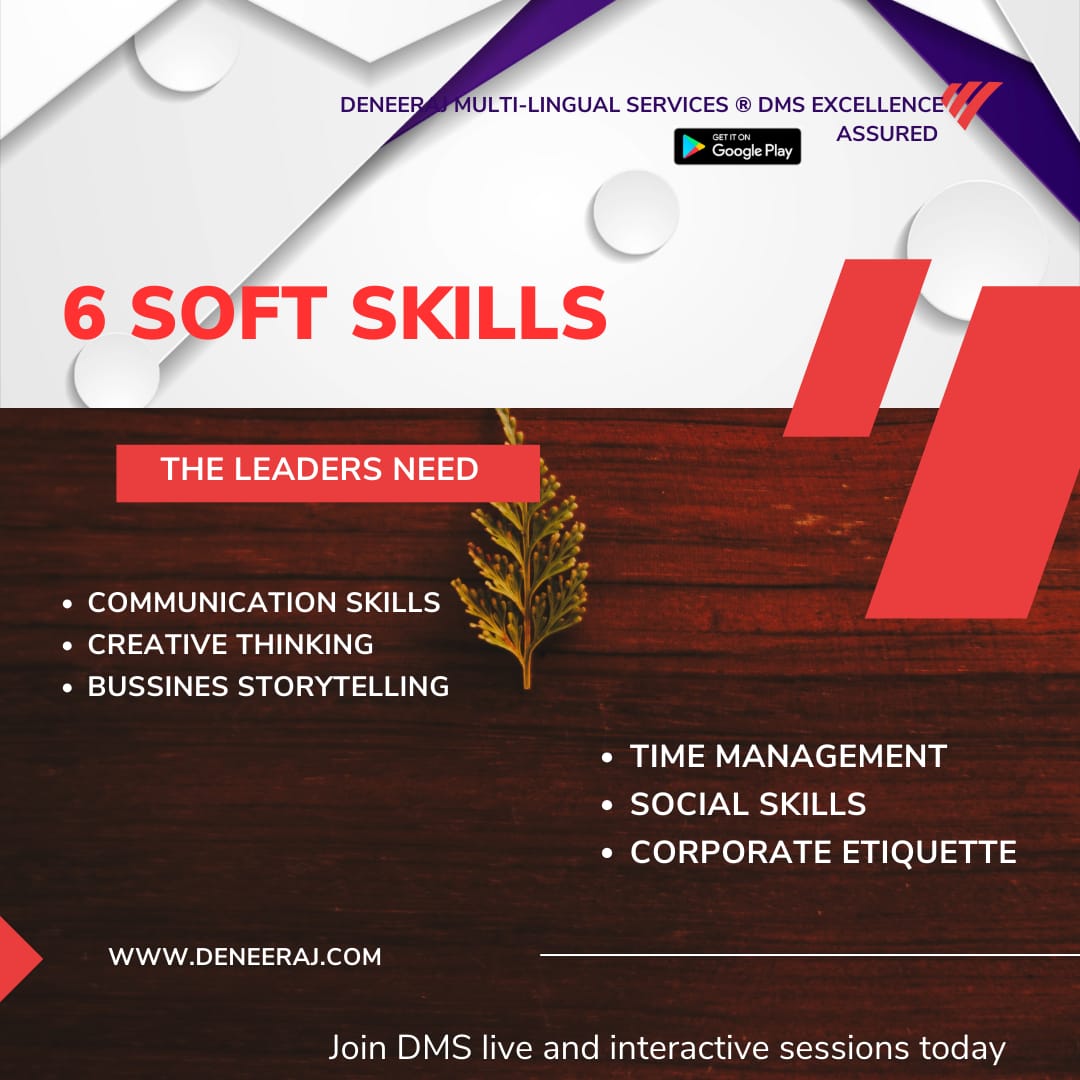Listening Skills for the Excellent Communicator I The Art of Listening
Listening Skills for the Excellent Communicator I The Art of Listening
As a good speaker, you’ve likely trained yourself to capture attention with your words. You’ve honed your ability to communicate ideas clearly and concisely. But the real challenge, especially for excellent communicators, is knowing when not to speak—when to simply listen. In many situations, listening is the most powerful tool you can use to connect with others.

Mastering Effective Communication | Soft-Skills Workshops | Enhancing Guest Relations with Active Listening | Cultural Adaptability
Take this scenario: you’re in a conversation where someone is asking about your communication courses. Naturally, this triggers your instinct to speak. You know they expect you to explain DMS Communication Solutions , and you’re good at it. But what happens when the person isn’t just looking for answers but wants to express their own thoughts, concerns, or needs?
It’s easy to fall into the habit of interrupting before finishing their sentences because you already know what they’re going to ask. However, effective communication is about letting the other person finish, even when you’re sure of what they’re about to say.

Listening Skills for the Excellent Communicator I Mastering the Art of Listening Before You Speak I Essential for Leadership & Speakers
We often find it easy to listen to podcasts, radio shows, or even conversations over the phone. When we tune in to these forms of communication, our minds are mostly relaxed, and we absorb the information objectively. We’re simply receivers, taking in the speaker’s words without feeling personally involved. However, when someone speaks to us directly, face-to-face, listening suddenly feels more challenging. Why is that?
The reason lies in the shift from objective to subjective listening. When we listen to a podcast or TV show, the content isn’t about us—it’s information that we’re passively taking in. There’s no personal stake in what’s being said, so we can process the words calmly and without much emotional involvement.
But face-to-face communication is entirely different. It’s subjective and direct. When someone speaks to you in person, the words aren’t just floating in the air—they’re directed at you. And that’s where the complexity begins. You start thinking, “Is this about me? Is what they’re saying for me or against me? How does this affect me?” Your mind naturally goes into defense or evaluation mode, and instead of listening purely to understand, you begin to interpret their words through a personal lens. This makes it harder to focus solely on what the person is saying, as you’re also processing your own emotions and thoughts.

I’ve experienced this myself in workshops. During a session, someone began to express a question, and I could predict where it was going before they even finished. My natural response? To jump in with the answer. But over time, I’ve learned the importance of resisting that urge. Why? Because even if I’m right about where the conversation is headed, cutting someone off can make them feel unheard. It shifts the conversation from a dialogue to a monologue.

Here’s the thing—when you allow others to fully express their thoughts, they feel valued. They trust that you’re not just waiting for your turn to speak but are genuinely interested in what they have to say. This simple act of listening builds stronger relationships, fosters open communication, and, in turn, makes you an even more effective communicator.

So how can you master this balance between speaking and listening, especially when your natural instinct is to talk?
- Pause Before You Speak: Even if you know what the person is going to say, take a deep breath and let them finish. This shows that you respect their thoughts and gives you time to process everything they’ve said.
- Reflect and Respond: After they’ve spoken, reflect on their words and respond accordingly. This could be as simple as saying, “I hear what you’re saying. Let’s dive into that,” or asking a clarifying question to show that you’re truly engaged.
- Create Space for Dialogue: In situations where you’re expected to speak, like when explaining your courses, try to create moments where the other person can contribute. Ask open-ended questions that invite them to share their thoughts, so the conversation doesn’t feel one-sided.
- Be Mindful of Body Language: Listening isn’t just about being silent. It’s about using your body language—eye contact, nodding, and active gestures—to show that you’re fully present in the conversation.

The Art of Listening: Mastered by Excellent Speakers and Essential for Leadership
As an excellent speaker, you may be able to capture attention, motivate others, and communicate ideas effectively. But the true art of communication—and a cornerstone of leadership—lies in mastering the skill of listening. Even if you’re a great communicator, without the ability to listen, you’ll struggle to lead effectively.
Leadership isn’t just about expressing your thoughts or directing others; it’s about understanding the needs, concerns, and perspectives of those around you. Without good listening skills, you may miss critical insights, fail to address key issues, and ultimately, you won’t earn the trust and loyalty required to inspire and guide a team. In the end, a great leader is always a great listener first. By honing your listening skills, you not only improve your communication but also create stronger relationships, foster a collaborative environment, and lead with empathy and understanding. Leadership, at its core, is about listening—truly listening—before you act. By practicing these techniques, you can transform how you communicate in everyday interactions. Remember, listening is not about being passive; it’s an active part of communication that, when done well, can elevate you from a good speaker to an excellent communicator.
If you’re looking to enhance your listening and communication skills, our courses in reflective communication, storytelling, and accent learning are designed to help you become a better listener and communicator. Listening is the first and most important step to mastering any form of communication—and it’s essential for building strong relationships, whether in your personal life or in leadership roles.
Overcoming Communication Barriers I Strategies for Clearer Communication I Talk Like A Pro I Communication Skills Workshops I Confidence
All our soft skills courses and training programs are customized. By tailoring each course to your participants, you will find that your results will increase a thousand-fold. Our dedicated team uses examples, case studies, anecdotes, and stories that are relevant to the group. We screen, Identify, and evaluate whether all participants are strangers or whether they work together. We tailor our approach accordingly. We know that different people have different learning styles so we use different types of activities to address it. Our experiential Training courses and programs are about creating awareness and helping you to communicate through effective body language. We must recognize that Body Language is Language hence the very impressive tool to communicate; it simply means you can communicate more accurately when verbal and nonverbal communicational tools complement each other.
Places are limited BOOK NOW to avoid disappointment.
Contact us now for a FREE consultation!



